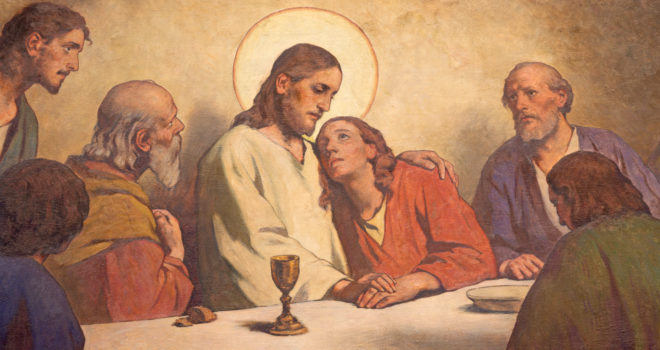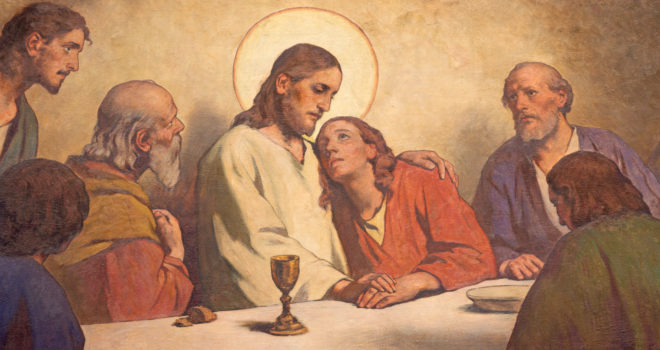Wis 9:13-18; Phlm 1:9-10,12-17; Lk 14:25-33
My first month in the seminary was rather disappointing. I found myself in hospital twice and I failed my first exam in Latin. I was still trying to make sense of the uninspiring beginning in my priestly and religious formation when a confrere asked me, “Is this really your vocation? Are you sure that you can embrace and fulfill this vocation to the end?”
That was over two decades ago.
I reflect now at that disappointing beginning and equally discouraging question in the light of Jesus’ words in Lk 14:25-33 and my personal experiences. I have learned that there are three confessions or belief statements that we must constantly make from our hearts as Jesus’ disciples if we are going to be faithful to the demands of our vocations.
Confession #1: “I cannot do it on my own.”
Jesus Christ invites us to vocations that we cannot fulfill by our own resources. We must come to the point of acknowledging that we just don’t have in ourselves the strength and power to embrace and fulfill our vocations. Our good intentions and firm resolves can only go so far.
This is why Jesus asks us to first count the cost before we make a commitment in His service, “Which of you wishing to construct a tower does not first sit down and calculate the cost to see if there is enough for its completion?” This counting of the cost involved is not to discourage us, but to bring us to the point of acknowledging that we do not have what it takes to begin and to finish our endeavors in His service. This humble realization prepares us for the next confession.
Confession #2: “Christ will do it through me if I renounce all and surrender to Him.”
We must surrender and renounce all so as to allow Christ to act through us and do what we just cannot do on our own. He cannot act in us and through us while we are dependent on our own inadequate resources apart from Him.
Thus, He also commands us, “In the same way, any one of you who does not renounce all his possessions cannot be my disciple.” This renunciation must also be accompanied by our complete dependence on Him and our readiness to cooperate with Him. He is the main actor and we make sure that we do not hinder His action in us in any way. We strive to remove obstacles to His loving action in us like sin, selfishness, and every form of self-indulgence.
Confession #3: “I must do it for Christ alone.”
For Christ to act through us, we must desire that whatever is done is done to please Him alone and above all others. We cannot expect Him to act through us when we are primarily thinking of pleasing ourselves and others. We cannot be beneficiaries of His grace while seeking to use them to please others apart from Him.
Thus, Jesus also commands us, “If anyone comes to me without hating his father and mother, wife and children, and even his own life, he cannot be my disciple.” Asking that we hate our loved ones is Christ’s way of demanding that we primarily to seek to please Him in an absolute and unconditional way and to please others in a relative and conditional way. As we seek to please Him above all others, it is perfectly okay not to meet the expectations of every single person.
My dear brothers and sisters in Christ, by virtue of holy baptism, every vocation in the church – religious life, priesthood, married life, single life – is a call to mission with Christ. Counting the cost alone is not enough because we can never know in advance what this mission will cost us, “Who can know God’s counsels, or who can conceive what the Lord intends?”(Wis 9:13)
We believe that the Father’s plan, fulfilled in the mission of Jesus, is redemptive suffering. Christ suffered to redeem humanity and invites us to participate in that redeeming mission through the sufferings inherent in our respective vocations. There is thus a cross for Christ’s disciples in each and every Christian vocation, “Whoever does not carry his own cross and come after me cannot be my disciple.”
The purpose of the cross in our vocations is to imprint these three confessions in our hearts so that they are not just ideas in our heads. Through the suffering of the cross, our hearts are taught that we cannot fulfill our vocations on our own ability. Our sufferings bring us to surrender and renounce all so that Christ will act in us and through us. Suffering also brings about greater purity in our intention so that we can indeed do all things to please Christ alone.
Because of this inherent suffering in every Christian vocation, it is easy for many to begin but not to fulfill their respective vocations. Thus, we have many abandoned vocations. There are so many broken marriages and departures from the priesthood and religious life. There are many half-hearted vocations wherein many are looking back and wondering if they made the right decisions. Many healthy and seemingly holy vocations end in the most abhorrent scandals in the church. There are vocations that are deprived of deep joy, holiness, and fullness of life.
There are many reasons why we have this crisis in faithful and joyful vocation in our times. But we must first ask ourselves if these three confessions are present and operative in us. Are we deeply convinced that we cannot fulfill these vocations as God wills them on our own strength? Are we still depending on our own ability and resources? How completely are we renouncing all so that Christ can act in us and through us? How ready are we to please Christ alone in our vocations and not ourselves or others? Are we ready to experience criticism and rejection from others as we follow Him in discipleship?
St. Paul shows us how these confessions can sustain us in our vocations. Writing from captivity, he says to Philemon, “I, Paul, an old man, and now also a prisoner for Christ Jesus, urge you on behalf of my child Onesimus, whose father I have become in my imprisonment.”(Phlm 1:9-10) He does and suffers all for Christ Jesus even as his physical strength seems to fail him.
Our Lord Jesus Christ who called us to holiness and fidelity in our vocations knows our weakness very well, much more than we do. He also knows the burdens we carry as we share in His sufferings. He comes to us in each Eucharist because He wants to act through us and in us so that we can be faithful to the commitments that He has inspired in us. His grace in us can do much more than we can even imagine or desire. If we have the right confessions as His disciples rooted in our hearts and evident in our attitudes, we too can embrace and joyfully fulfill the great demands of vocations, and do it all for the sake of Jesus Christ alone.
Glory to Jesus! Honor to Mary!
✠












